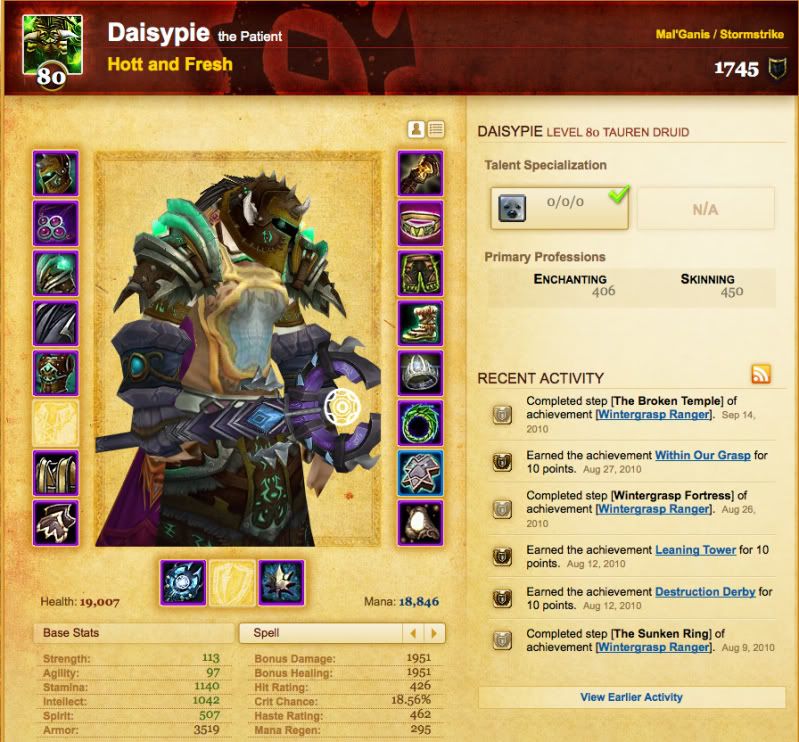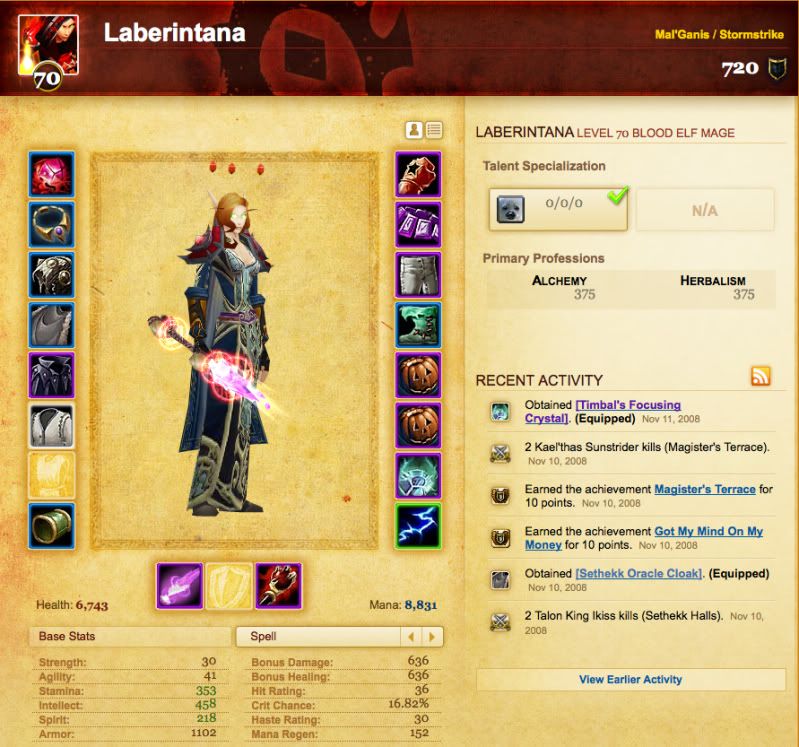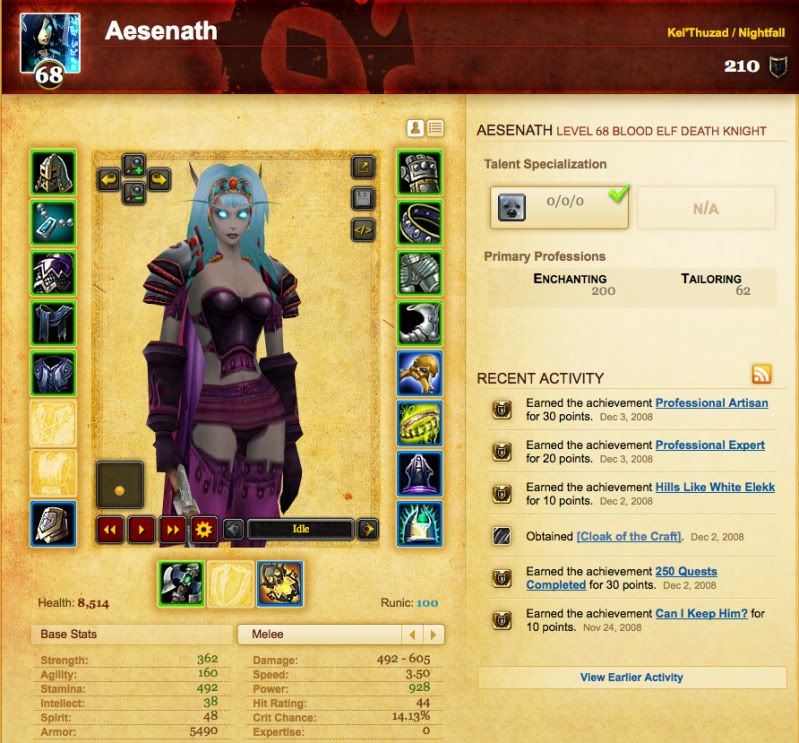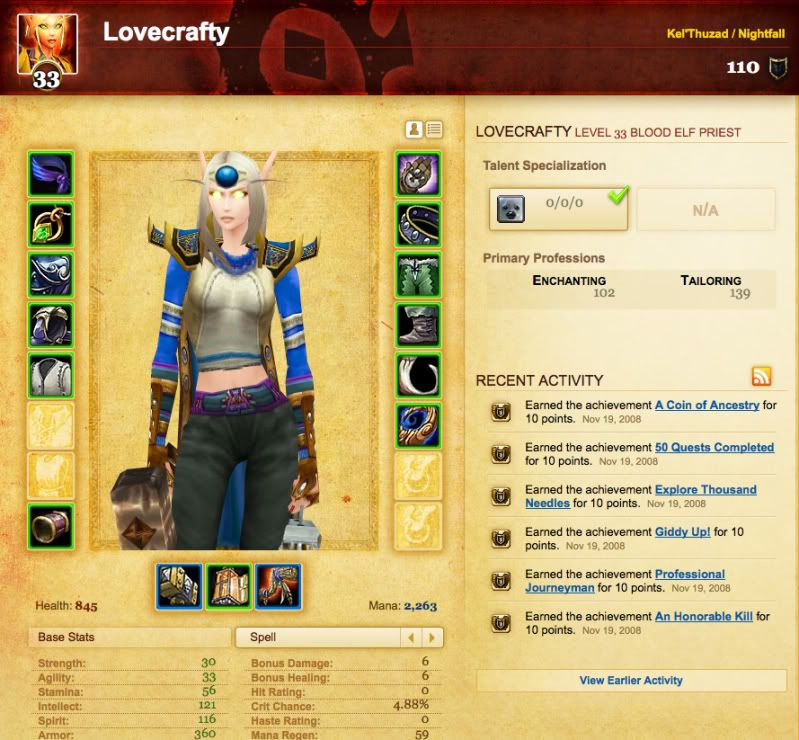Based on my personal plunge into the world of online gaming, and my first-hand accounts of the vast population that inhabit these fantastical worlds, I think this issue is something that needs to be addressed to a deeper degree if we are to begin deconstructing the culture of the internet. The final sentence of the section "Computer Gaming" quotes Sherry Turkle, a Social Studies professor as warning of "the danger of being lost in cyberspace and mistaking the dream for the real world." (pg. 363) I wish this had been the first sentence of the section. Since going cold turkey on World of Warcraft over a year ago, I still find myself feeling sensations of "homesickness" for the virtual landscapes of the game. It is a wonderfully intricate community, and offers many of the leisurely activities of the real world. Not only that, it is possible to forge many cooperative friendships when teaming up with others to achieve a lucrative goal. I have a hard time convincing myself that the time I spent sitting statuesque, but for the flying of my fingers, is time I should regret wasting. I believe that the virtual world, as a simulation of our real-world culture, is just as capable of teaching us self-identification and acculturation as the real world. I would love to see some more studies exploring the changes in a person's confidence level.
Turkle also describes players "whose game-life has merely highlighted the limitations and inadequacies of their 'real life'." (p. 362) I'm not sure what to make of this. Many of the people who are attracted to these games may not have found solace in anything else the real world has to offer. I think we are fortunate for people who are disabled or seen as physically unfit for 'normal' social interactions to have an opportunity to truly be them'selves' when the fleshly world shuns their inner spirit. However, it is important for these same individuals to take the self-worth they have discovered and apply it to a real-world context, so that they may not always be afraid to make any changes in the world around them. This goes back to the original point that the internet can feel more productive and active than it actually is. This is especially relevant in gaming, where short and long-term goals seem endlessly available in the same small context. In short, as the famous proverb says, "you can't take it with you when you go."
But just in case it turns out the Egyptians have a better idea of life after death, I will fill this blog-y tomb with the relics of my virtual wealth.




No comments:
Post a Comment